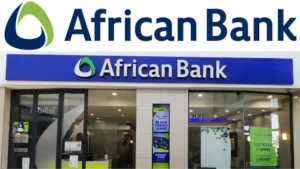High Service Charges: Why South African Banks Face Parliamentary Scrutiny
MPs Seek South African Banks Over Exorbitant Service Charges
South Africa’s banking industry is under siege, following calls by the country’s Members of Parliament for the country’s top financial houses to appear before Parliament and answer questions on excessive service charges. This comes amid increased public outcry over rising bank service charges, deemed by many to be targeting low-income earners and small businesses disproportionately.
Public Pressure Builds
For years, South Africans have been complaining about the fees charged by banks for cash withdrawals, account maintenance, and electronic transfers. As important as banking services are to economic participation, the high costs have pushed many citizens toward informal financial solutions or left them financially excluded.
MPs from different political parties were recently heard showing the differences in charges by South African banks compared to other countries. They argue that the fees charged are not justifiable considering the high unemployment rate and poverty levels in the country.
“We cannot allow banks to profit at the expense of ordinary South Africans who are already struggling to make ends meet,” said one MP during the debate. “These charges widen the gap between the rich and the poor, and it’s time we hold these institutions accountable.”
Banks to be Brought to Heel
Based on such published reports claiming a lack of transparency about the fee structures of several banks and a heavy degree of variation in charges made between such banking groups, consumer rights organisations are calling the bankers to Parliament for failing in the competition within banking institutions, which allows steep charging by banks without an incidence of losing customers to themselves.
MPs will demand that the banks explain in detail how they come up with their pricing models, breaking down the operational costs that justify such charges. They will also ask why technological advancement, such as automated banking services, has not led to a reduction in cost for consumers.

Global Comparison
South African banking fees, measured in terms of per capita income, are among the highest in the world. Research has established that within developed economies the major banks frequently collect nominal fees, while South African banks continuously raise substantial revenue through service charges.
Industry insiders argue that the high fees are partly due to regulatory compliance costs and the need to maintain extensive banking infrastructure in both urban and rural areas. However, critics point out that these justifications fail to address why consumers are bearing the brunt of these costs without any visible efforts from banks to innovate or reduce inefficiencies.
Impact on Low-Income Groups and Small Businesses
The high cost of banking services has a ripple effect on South Africa’s economy. Low-income earners are discouraged from the formal banking systems by these charges and usually resort to cash transactions, which are both risky and inefficient. Similarly, small businesses, which form the core of the economy, suffer more because of high transaction fees that erode profit margins.
A small business owner who resides in Johannesburg lamented: “Every time I make a payment or withdraw money, I lose a huge portion of my earnings due to bank charges. It’s hard to grow a business when these fees just keep piling.”
What’s Next?
The parliamentary inquiry may bring about drastic changes in the banking sector. MPs are likely to push for more stringent regulations, including caps on service fees and greater transparency in pricing. There may also be calls for increased competition in the sector, with policymakers encouraging the growth of fintech solutions and alternative financial services to provide consumers with more affordable options.
The ability of this to take place with significant contributions from the South African Reserve Bank and other relevant regulation bodies brings banks into light on possible compliance with the recommendations or regulation that might result from such hearings.
Banks React
Some banks have taken their defense of fee structures to the Parliament, indicating that maintaining large branch networks and fulfilling strict regulatory requirements do not come cheap. Consumer advocacy groups respond by saying that these responses are not in earnest and do not help the issue at hand of unaffordability.
As the inquiry unfolds, South Africans will be watching and waiting to see if their plight over excessive banking fees will eventually be redressed. This development by Parliament might be the tipping point towards an equitable financial market, but much will also depend on the steps made by lawmakers, regulators, and the banking sector itself.
The upcoming hearings are a pivotal moment for the country’s financial system, with the potential to transform banking in South Africa for the better.
Exciting news! Trilok Media is now on Whatsapp channels✈️ , Subscribe today by clicking the link and stay updated with the latest News :- Click Here
READ MORE:- Government Scraps Windfall Tax on ATF, Crude, Petrol, and Diesel Exports

